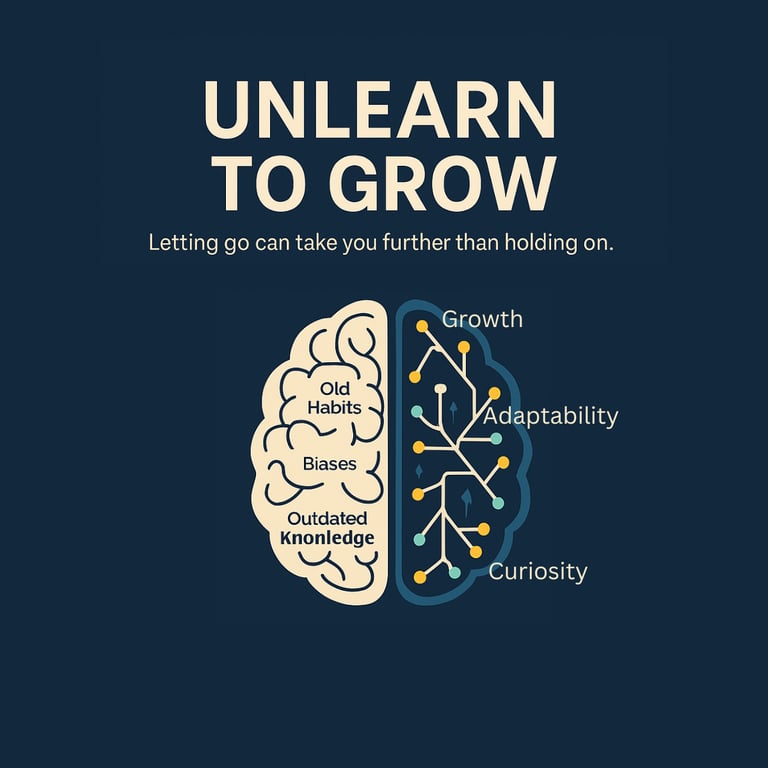Why Unlearning Is the New Superpower in a Fast-Changing World
How to unlearn things to ensure the progress.
7/2/2025


When we talk about growth and success, we often focus on learning new things: faster skills, better habits, and sharper thinking. But we rarely talk about the equally—if not more—important skill: unlearning.
Our brain is a marvel of neuroplasticity, meaning it can create new neural connections throughout life. But this same mechanism also clings to outdated habits, old knowledge, and deeply ingrained behaviors that no longer serve us. To move forward, sometimes we need to let go first.
What is Unlearning?
Unlearning isn’t about forgetting. It’s about challenging and letting go of old assumptions, mental models, or behaviors that were once helpful but now hold us back. It requires self-awareness and the courage to admit: “What got me here may not get me there.”
Real-World Examples
When Tiger Woods wanted to elevate his game, he did the unthinkable—he unlearned his entire golf swing. This initially caused setbacks, but in the long run, it led to years of dominance in his sport.
Personally, I experienced this when I moved to the UK to study. I came from a background where learning meant memorizing and never questioning teachers. Suddenly, I had to engage in arguments, lead projects, and think critically. I felt like I went from a top student to mediocre overnight—but that shift was the best thing that ever happened to my learning process.
Why Unlearning Matters
To open up new paths
To boost performance
To gain a competitive edge in a changing world
To adapt models and behaviors to new environments
Think of it like this: a lumberjack can keep sharpening the same axe, but when the forest changes, maybe what they need isn’t a sharper axe—it’s a chainsaw.
How to Unlearn and Relearn
Start Curious
Acknowledge that what you know might not be true—or useful—anymore.
Stay Curious
Explore where you want to go. What are the assumptions holding you back?
Commit to New Learning
Once you identify new models, learn them patiently. Your brain might resist at first—that’s normal.
Remain Adaptable
Just because you’ve unlearned once doesn’t mean you're done. The world keeps changing. Keep your curiosity alive.
“In a world of rapid change, the learners will inherit the earth while the learned will find themselves beautifully equipped for a world that no longer exists.” — Eric Hoffer
Sometimes to move forward we need to take few steps back and go on another path. Unlearning is doing just this for our development and mental growth.
